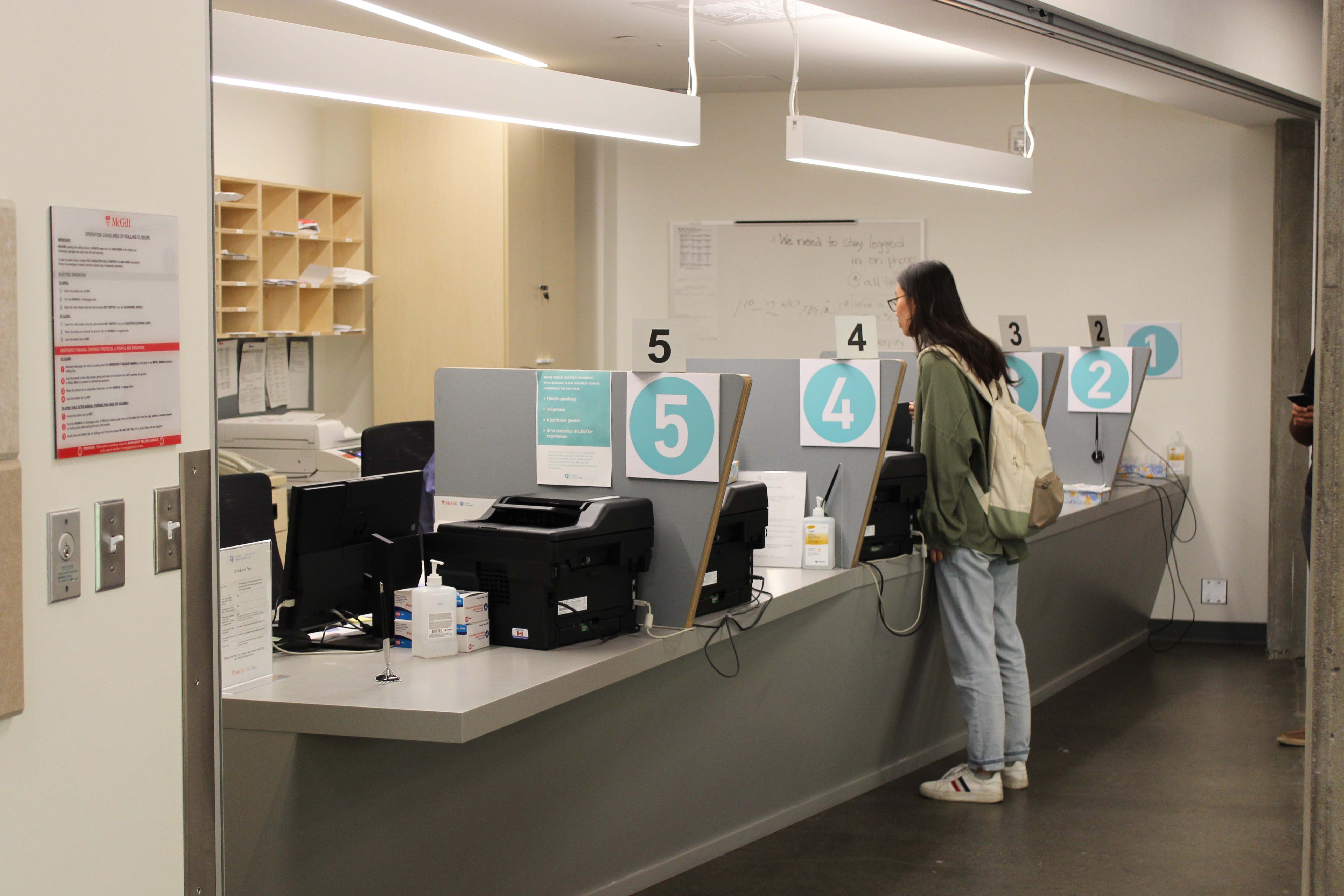A $14 million investment to revamp McGill’s student health care is taking shape with the creation of the Rossy Student Wellness Hub, which integrates medical care with counselling and psychiatric services.
The majority of the funds will be used to hire two dozen additional staff, including general practitioners, case managers, and counsellors, as well as 14 local wellness advisors—trained clinicians located in residences or faculties intended to serve as points of first contact for students.
Not included in the budget, however, is the addition of psychiatrists. The number of full-time psychiatrists at McGill has decreased from seven to five in the past year due to retirements, maternity leave, and other reasons beyond the university’s control, according to Executive Director of Student Services Martine Gauthier.
“We do not actually hire psychiatrists,” Gauthier said in an interview with The McGillTribune. “Psychiatrists are paid through the healthcare system, and they are not on salary with [McGill].”
The student health services space has two new kiosks that are now stationed at the third floor of the Brown Building, allowing students to check-in for a planned appointment or schedule future ones.
While extensive physical changes have been made, Rick Hink, the director of communications for Student Services, was quick to stress that they represented only 10 per cent of the project’s budget.
The new changes to the Student Wellness Hub come at a time when universities are seeing a marked increase in students seeking mental health care, according to Gauthier, over 6,000 McGill students have accessed mental health services in the past year alone. This uptick has forced universities to confront important questions regarding their role in providing students with healthcare.
“The reality is that our services are short-term care, and if a student chooses long-term care or weekly access, then we will help them to connect to an external resource that can facilitate that type of care,” Gauthier said. “But we ourselves don’t have the capacity.”
Through the streamlining of services, administrators at the Student Wellness Hub hope to reorient their efforts toward early intervention and prevention.
“If we can get to students at that early point—where I am dealing with something now—without waiting for weeks or months to be able to deal with it, then we can intervene,” Gauthier said.
Since early July, the Student Wellness Hub has undergone a transitional phase before beginning full operation in the Fall. According to Student Wellness Hub director Vera Romano, the summer months saw numerous technical issues with the kiosks and TV monitors.
“We had to set up a process that was agile,” Romano said. “That is, we couldn’t set up these new things and then meet once a month or create [these] heavy bureaucratic escalation processes […] so many students have already experienced [the technical issues].”
Administrators of the Hub say that the changes are made in acknowledgement of students’ criticism and dissatisfaction with the difficulty of accessing student health services.
“In the past, […] you try to move things quickly, and so you make decisions, and […] figure out the student experience later,” Gauthier said. “This is something we really take seriously: […] The student experience, and listening to student feedback and being responsive to that student feedback.”
Despite expressing concern that McGill hadn’t re-established its eating disorders program since which was discontinued in 2018, Billy Kawasaki, the Students’ Society of McGIll University’s vice president Student Life, agrees with the direction student services is taking.
“We think it’s a pretty good step in making mental health [care] and health [care] in general more accessible to students,” Kawasaki said. “Also, they are pursuing resilience-building initiatives, which minimizes the need for later intervention, which is better than the reactive model they had before.”







